AudioBooks
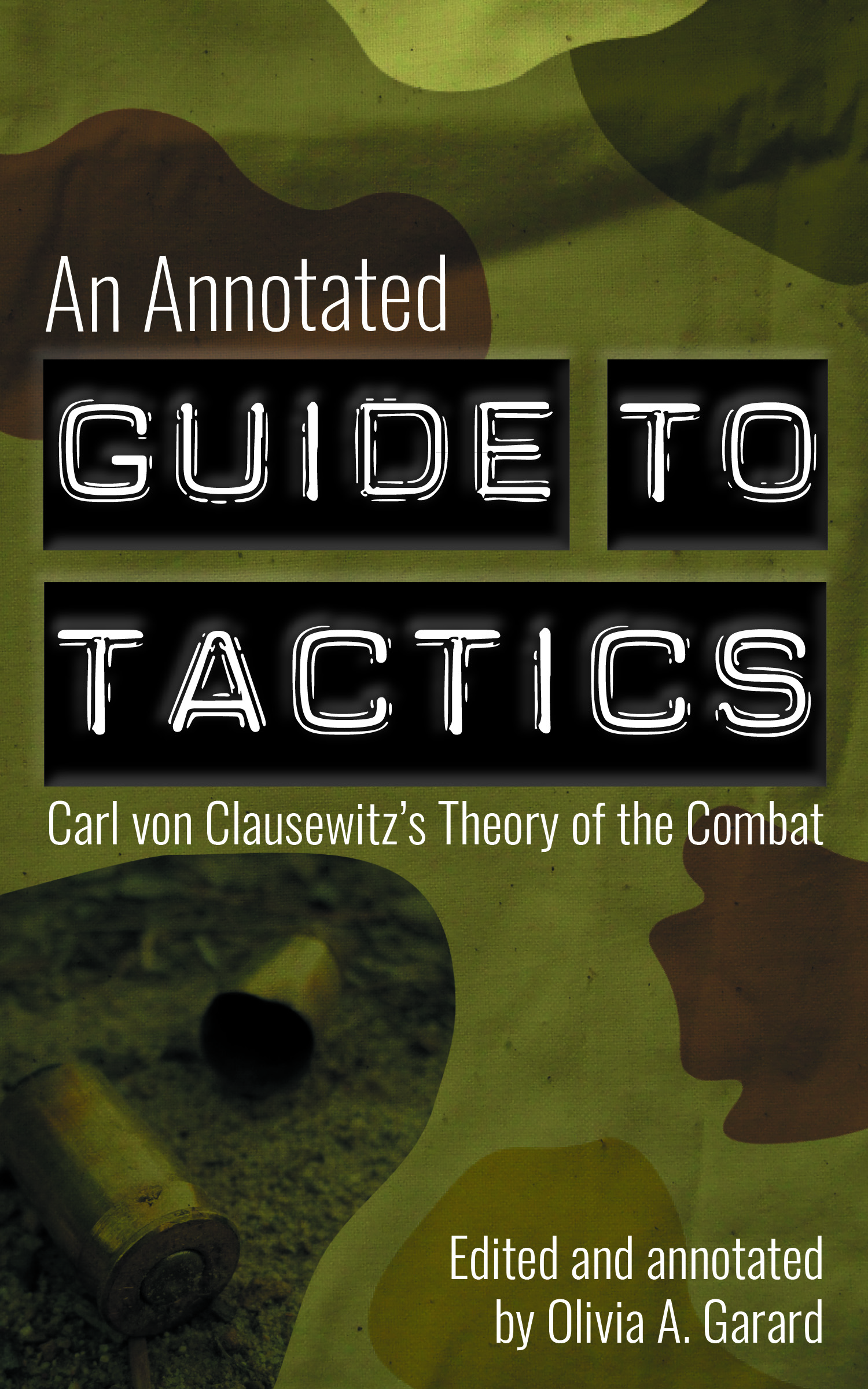 An Annotated Guide to Tactics: Carl von Clausewitz's Theory of the Combat
An Annotated Guide to Tactics: Carl von Clausewitz's Theory of the Combat
Edited and annotated by Olivia Garard
The philosophy on which the Marine Corps’ seminal warfighting doctrine is based rests on a tradition of professional military scholarship that reaches back to Carl von Clausewitz’s treatise On War. Clausewitz’s lesser-known and often-misunderstood Guide to Tactics, republished here for the first time as a standalone English text with critical annotations, serves as the foundation of the Marine Corps’ warfighting philosophy and provides a guide to thinking about the nature of tactics and combat for the modern warfighter.
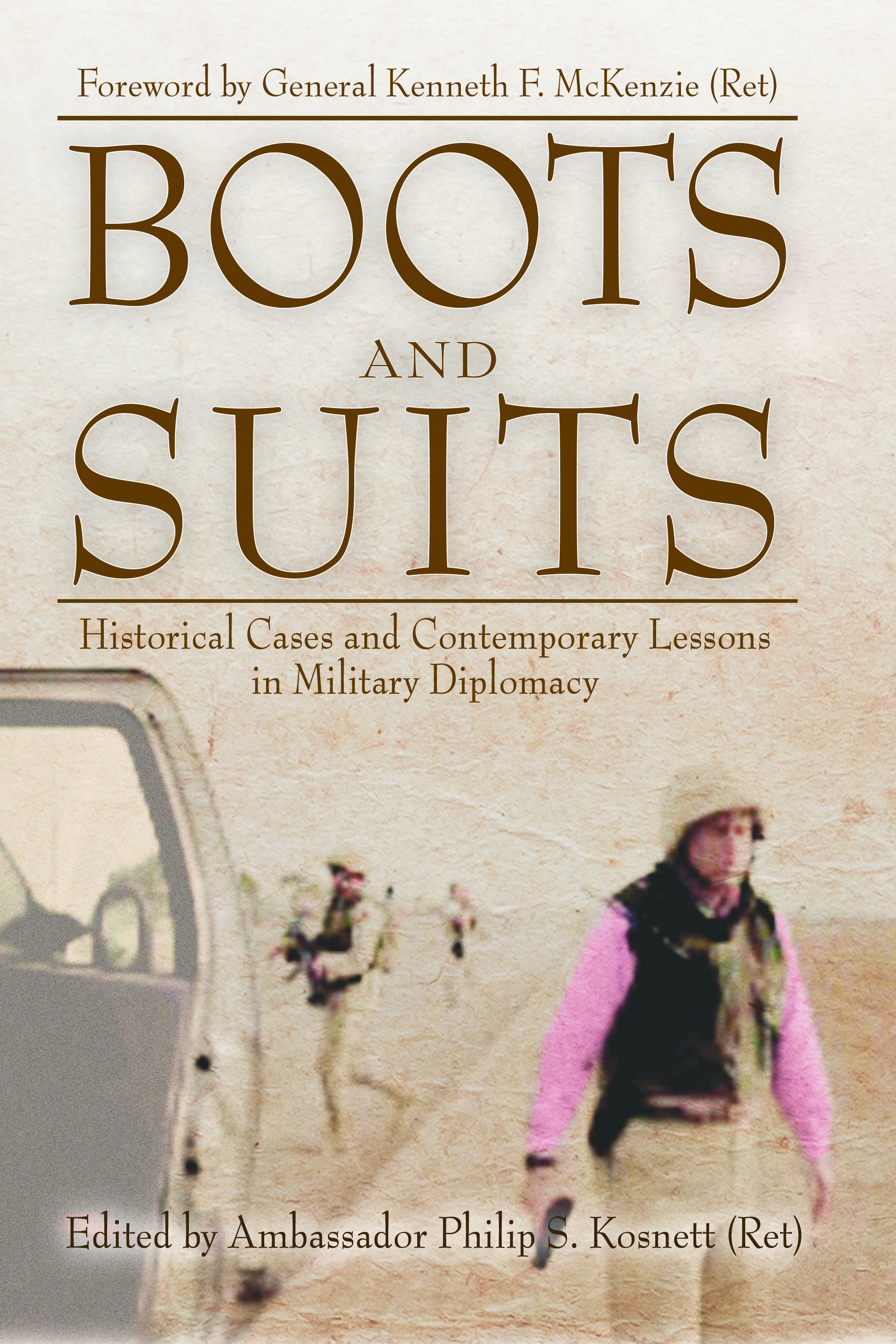 Boots and Suits: Historical Cases and Contemporary Lessons in Military Diplomacy
Boots and Suits: Historical Cases and Contemporary Lessons in Military Diplomacy
Edited by Ambassador Philip S. Kosnett
Boots and Suits, edited by Ambassador Philip S. Kosnett (Ret), discusses aspects of military diplomacy, featuring an edited collection of chapters by ambassadors, scholars, and servicemembers. This diverse set of authors explains military diplomacy through the lens of both the military and the diplomatic corps of countries, including perspectives from the United States, the Netherlands, and Turkey, among others. This volume will examine the aspects of military diplomacy as used by nations and what differentiates this concept from both military confrontation and diplomatic overtures when used as discrete concepts by nation-states rather than employing military diplomacy to advance their strategic goals.
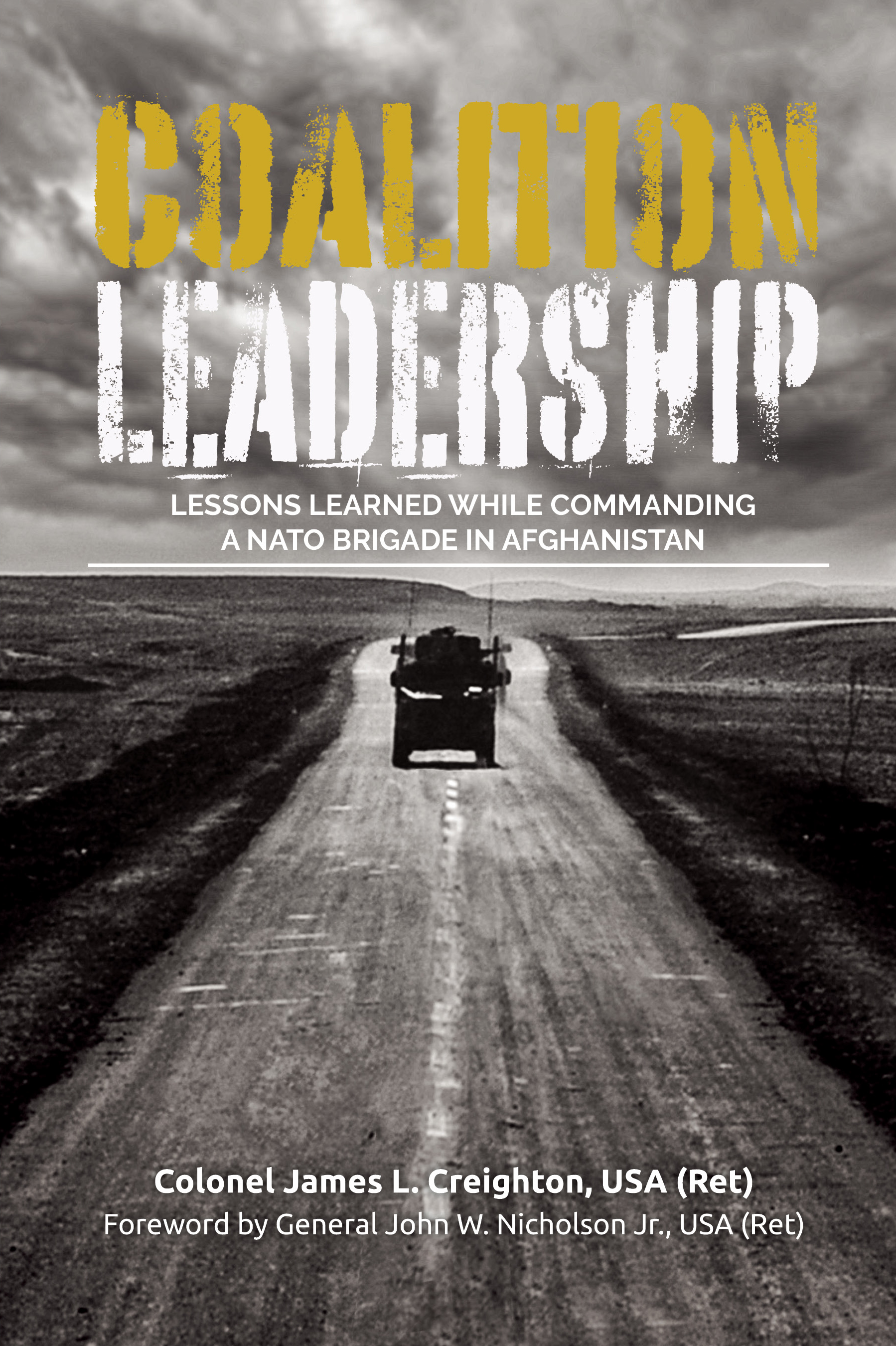 Coalition Leadership
Coalition Leadership
Lessons Learned While Commanding A NATO Brigade in Afghanistan
By Colonel James L. Creighton, USA (Ret)
foreword by General John W. Nicholson Jr., USA (Ret)
Colonel Creighton’s command provides an excellent case study in the leadership of coalitions, which are critical to the United States now and in the future. The U.S. military’s mission in Afghanistan enjoyed significant legitimacy because it operated within a coalition that was based on international mandates from the United Nations and the North Atlantic Treaty Organization (NATO). These mandates enabled unity of purpose among the more than 50 nations that joined the Coalition and sustained that unity for more than 20 years. Coalitions enable the sharing of burdens among troops, funding, equipment, and civil, humanitarian, and development support. When legitimacy is firmly established, political leaders can more easily generate domestic support and secure precious resources. Coalition members contribute within their unique capabilities, and as a result, the whole becomes greater than the sum of the parts. The unity enabled by legitimacy creates political and military options that are not possible when nations act unilaterally. Ultimately, this unity among the United States and its allies and partners will be essential to prevail in the strategic competition vis-à-vis China and Russia.
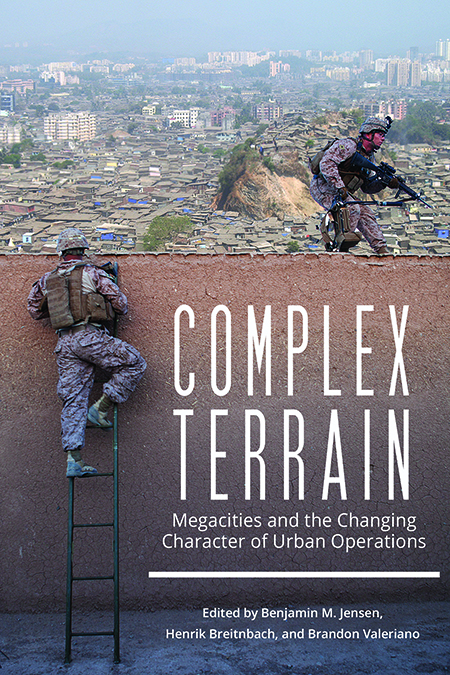 Complex Terrain
Complex Terrain
Megacities and the Changing Character of Urban Operations
Edited by Benjamin M. Jensen, Henrik Breitenbach, and Brandon Valeriano
This edited volume, composed by military professionals in the Gray Scholars Program at Marine Corps University, describes the changing character of urban operations. The pattern of human settlement and interaction is changing and the future is urban. Because the majority of the world’s population lives within cities, the future of strategic competition and conflict reside there as well. The density and connectivity of urban environments create a new type of complex terrain. Interests change from neighborhood to neighborhood, often intersecting global, political, and economic networks. Each city block sees shifting allegiances that often seem unclear from the outside. The cityscape compresses time and space while increasing uncertainty and complicating the conduct of military operations
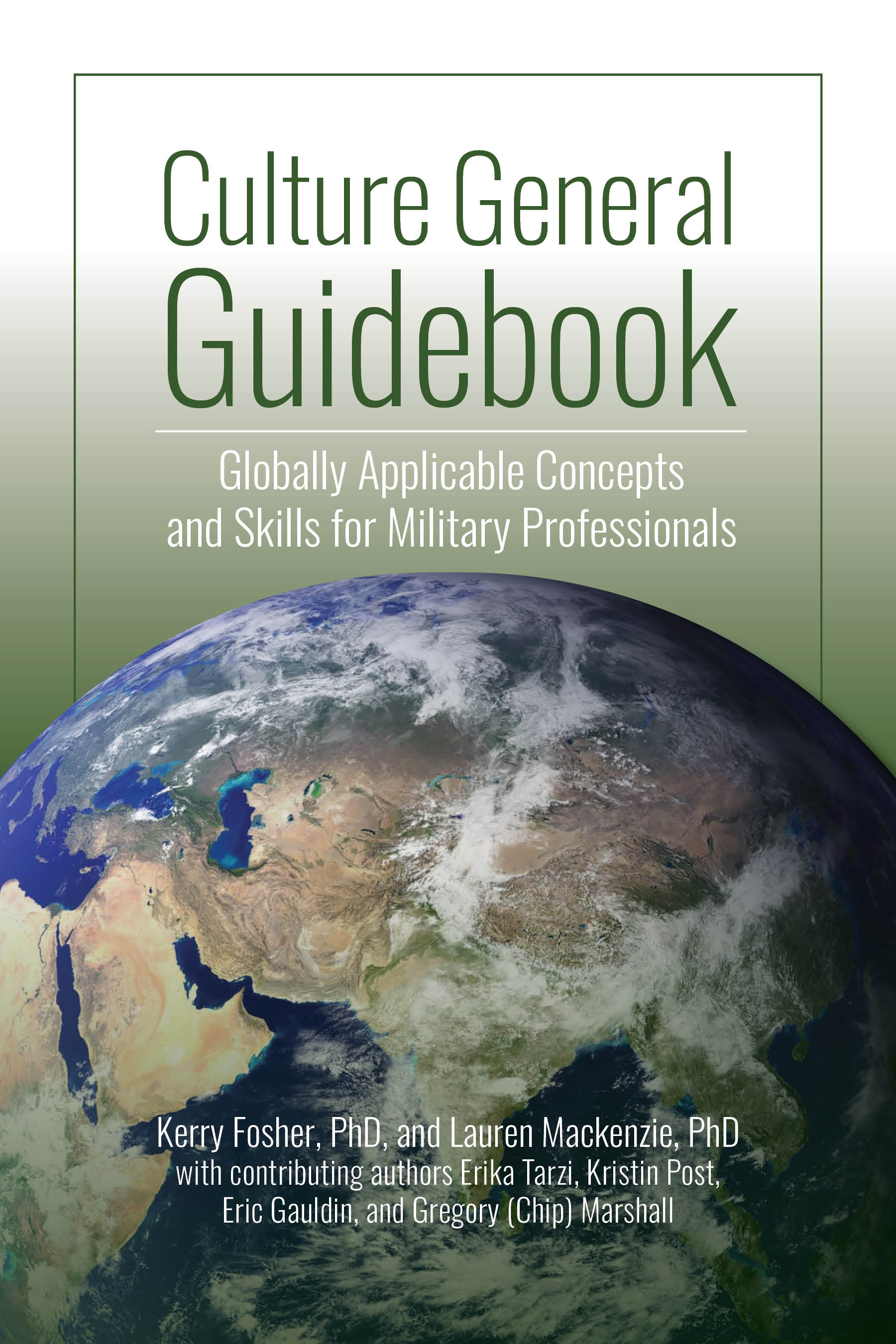 Culture General Guidebook
Culture General Guidebook
Globally Applicable Concepts and Skills for Military Professionals
By Kerry Fosher, PhD; and Lauren Mackenzie, PhD
with contributing authors Erika Tarzi, Kristin Post, Eric Gauldin, and Gregory Marshall
Current and future operating environments require forces that are as prepared as possible to deal with a multitude of complexities, not least of which are the people within those operating environments and a need to understand them. At the core of understanding people is culture, and developing competence in the art of understanding people through culture requires a deliberate and persistent effort. This guidebook represents an important step in adopting a methodical approach to culture in operations and describes an evolutionary approach to understanding the human dimension. The concepts and skills presented here under the umbrella of culture general provide a pragmatic toolkit to prepare servicemembers for global employment through the deliberate application of culture general knowledge and skills to specific cultures and regions. The concepts and skills presented in the guidebook are general in nature, and applicable in many, if not most, intercultural interactions. This guidebook serves as a good baseline for military personnel to develop the cognitive, metacognitive, and behavioral skills they need in an increasingly complex national security environment.
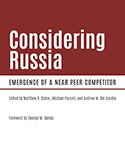 Considering Russia
Considering Russia
Emergence of a Near Peer Competitor
Edited by Matthew R. Slater, Michael Purcell, and Andrew M. Del Gaudio
Considering Russia helps us understand the implications for strategy and military planning behind Russia’s failure to integrate, as was maybe too naively expected, into the Euro-Atlantic and global economic and security architecture. Russia’s renewed assertiveness has created what might look like a new adversarial geopolitical context. This unexpected reality prompted the authors to analyze Russian military capability, tactics, and operational concepts, both through the contemporary filter of events in Georgia, Ukraine, and Syria, as well as the historical legacy of the Soviet Union. All of the authors, whether writing about the idea of hybrid warfare or the potential for conventional conflict in the Baltic region, uncover the continuities and novelties of the current situation and o er recommendations grounded in their professional experience with U.S. security policy as well as the Marine Corps.
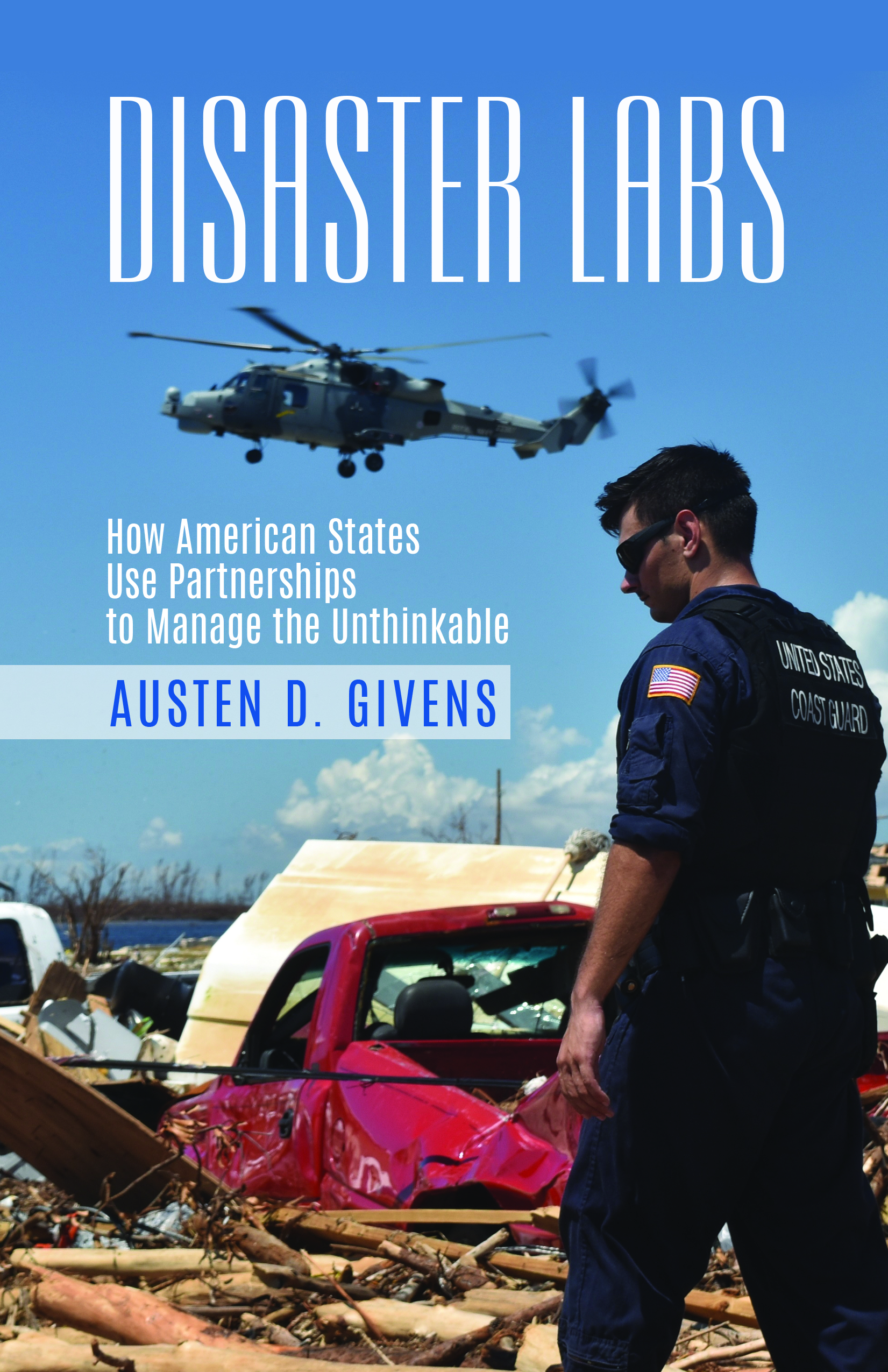 Disaster Labs
Disaster Labs
How American States Use Partnerships to Manage the Unthinkable
By Austen D. Givens
Disaster Labs explores how state governments partner with businesses and nonprofits to manage large-scale emergencies in California, Florida, New York, and Virginia. For these disaster-management collaborations to continue, state governments, businesses, and nonprofits must plan now for their future. These collaborations also need the freedom to shape their partnerships in each of their unique state environments. Each state has distinct attributes that make state-level partnerships attractive. These range from differing types of disasters, political environments, nonprofit sectors, and commercial entities. Without undue federal interference, these state-level, public- private partnerships work best to achieve results and provide relief to disaster-prone areas.
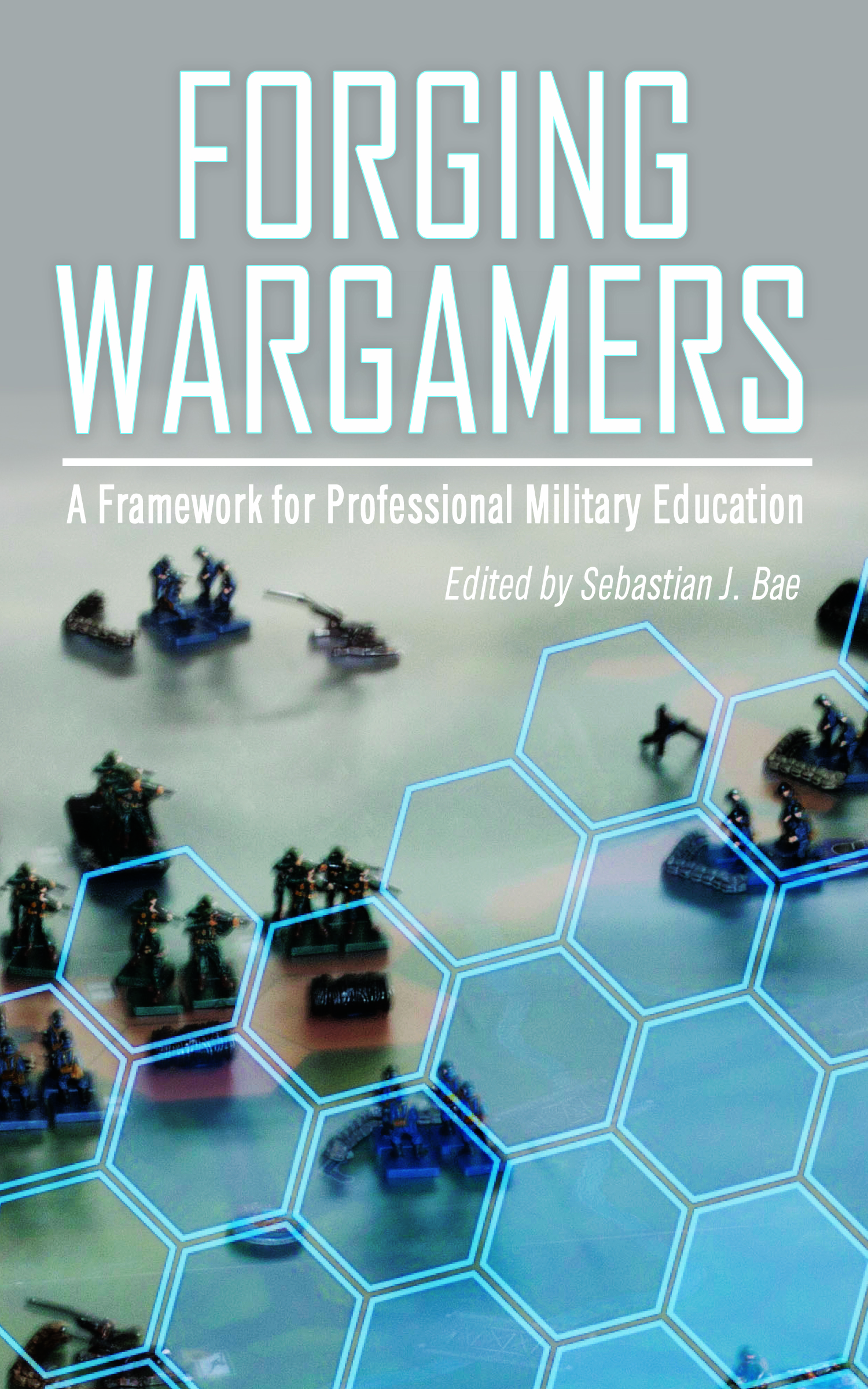 Forging Wargamers
Forging Wargamers
A Framework for Professional Military Education
Edited by Sebastian J. Bae
How do we establish or improve wargaming education, including sponsors, participants, and future designers? The question stems from the uncomfortable truth that the wargaming discipline has no foundational pipeline and no established pathway from novice to master. Consequently, the wargaming community stands at a dangerous precipice at the convergence of a stagnant labor force and a patchwork system of passing institutional wargaming knowledge. Unsurprisingly, this can lead to ill-informed sponsors, poorly scoped wargames, an unreliable standard of wargaming expertise, and worst of all, risks the decline of wargaming as an educational and analytical tool. This fundamental challenge is a recurring theme throughout Forging Wargamers and each author offers their own perspective and series of recommendations.
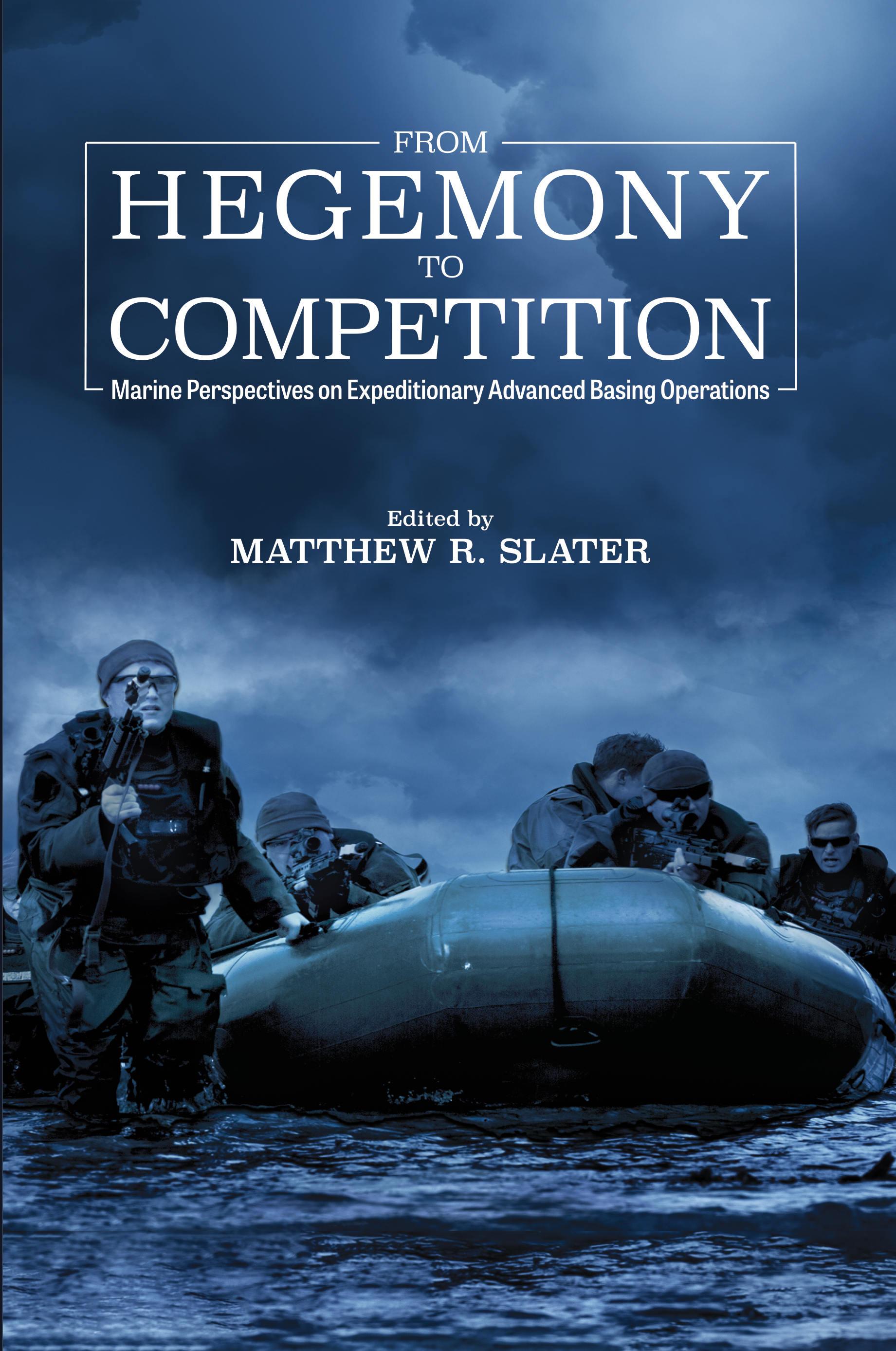 From Hegemony to Competition
From Hegemony to Competition
Marine Perspectives on Expeditionary Advanced Base Operations
Edited by Matthew R. Slater
The end of the Cold War in 1991 brought the United States more than two decades of global leadership and prosperity. Neorealist international relations theory correctly predicted that hegemony, although the most stable power arrangement, is doomed to deteriorate as rising competitors band together to challenge the existing world order. As the United States pivots from hegemony to competition, the Department of Defense is adjusting its capabilities to confront the Chinese Communist Party and the Russian oligarchy. The U.S. Marine Corps may be considered at the forefront of the rapidly changing force structure. These changes will not rely on the acquisition of new weapons systems for success. Instead, the capacity of Marines to accommodate new ways of thinking, norming chaotic processes, and adapt to dynamic operational environments will determine their outcome. This volume provides a window into how current and future Marine leaders will grapple with this historic challenge.
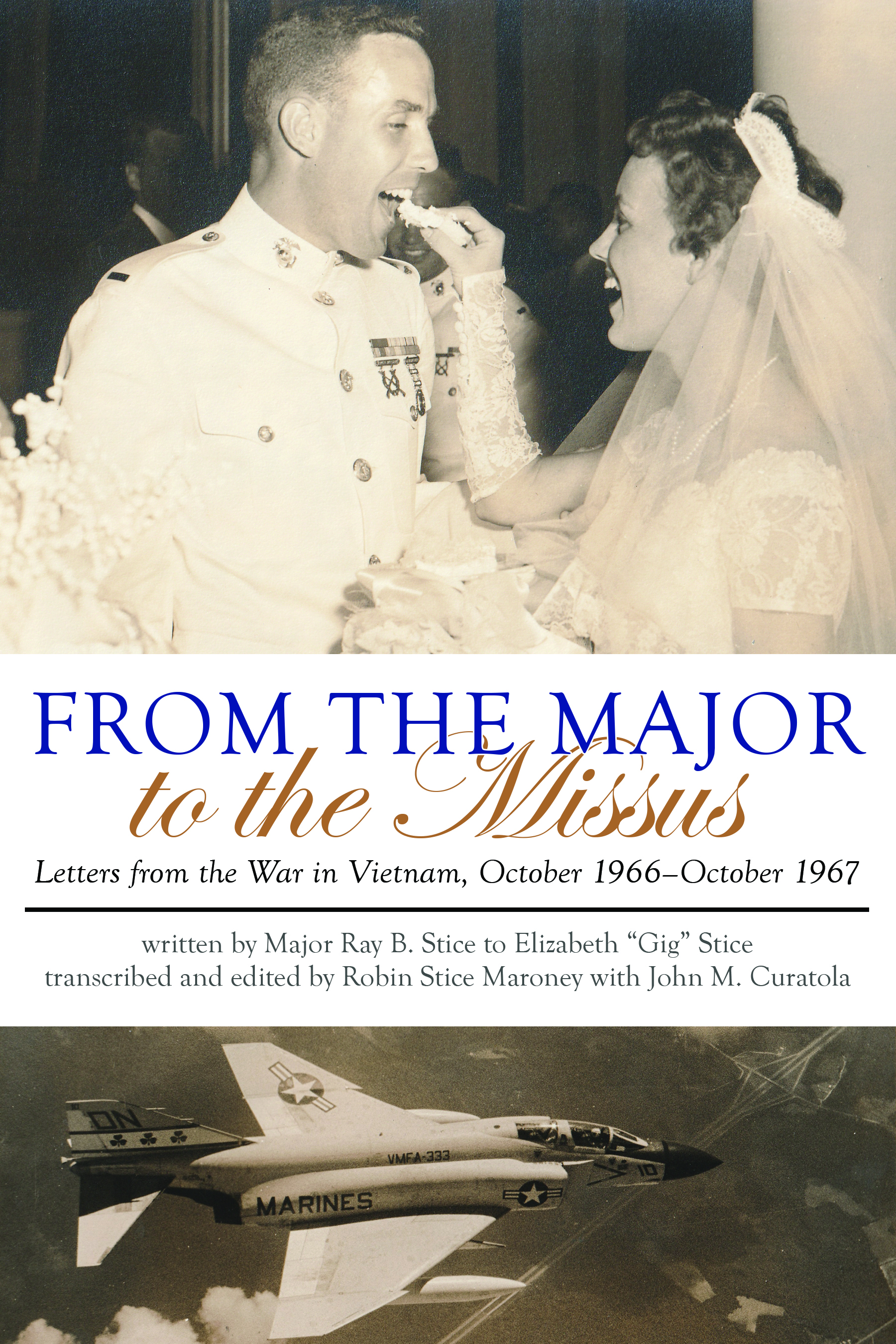 From The Major to the Misses
From The Major to the Misses
Letters from the War in Vietnam, October 1966 - October 1967
By Major Ray B. Stice to Elizabeth "Gig" Stice
transcribed and edited by Robin Stice Maroney
with John M. Curatola, PhD
At the height of American participation in the Vietnam War, U.S. Marine Corps fighter pilot Major Ray B. Stice, his wife Elizabeth or “Gig,” and their four children wrote to each other daily from October 1966 until his return home in late 1967. These handwritten letters are painstakingly transcribed here to capture the family’s devotion to each other while apart and detail their struggles, triumphs, laughter, and tears. Their correspondence became a lifeline for the Stice family and displayed their unwavering love that endured despite the perils of war. The letters take the reader back in time, offering a peek into the culture of 1960s Austin, Texas, and the mentality of a nation embroiled in a war that presented more questions than answers for those serving abroad and at home. This extraordinary collection illustrates the dynamics of a family separated by conflict without the conveniences of modern technology and displays a time-honored military way of life. Ray Stice’s letters reveal heart-stopping combat action straight from the cockpit of a Marine fighter jet, while Gig’s letters provide a glimpse into the everyday life of a military wife and the children waiting for him to safely return home. Importantly, the letters chronicle a year of active-duty Marine Corps service, bringing this history alive with stories of bravery and sacrifice from the battle front and the home front.
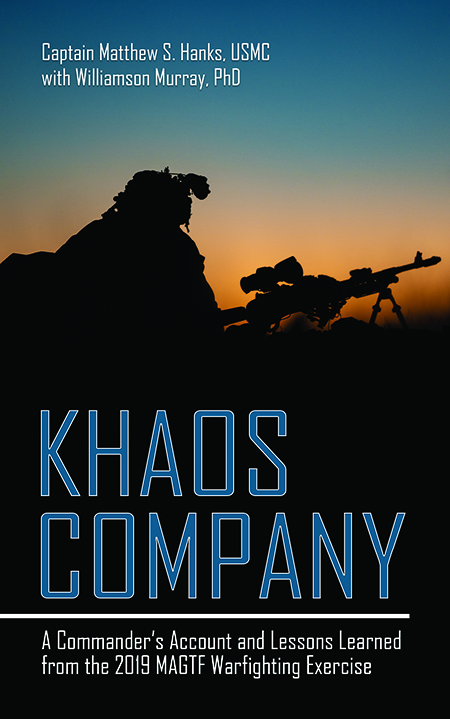 Khaos Company
Khaos Company
A Commander's Account and Lessons Learned from the 2019 MAGTF Warfighting Exercise
By Captain Matthew S. Hanks, USMC, with Williamson Murray, PhD
Khaos Company offers a short story written with the intent to provide Marines with the perspective of what it is like to operate and fight at the company- and small-unit levels in operations of such a large scale and scope. This is a story about how a small yet cohesive company of Marines experienced chaos, friction, uncertainty, surprise, failure, success, relationships, and executed the maneuver warfare principles outlined in the Marine Corps’ doctrinal warfighting philosophy.
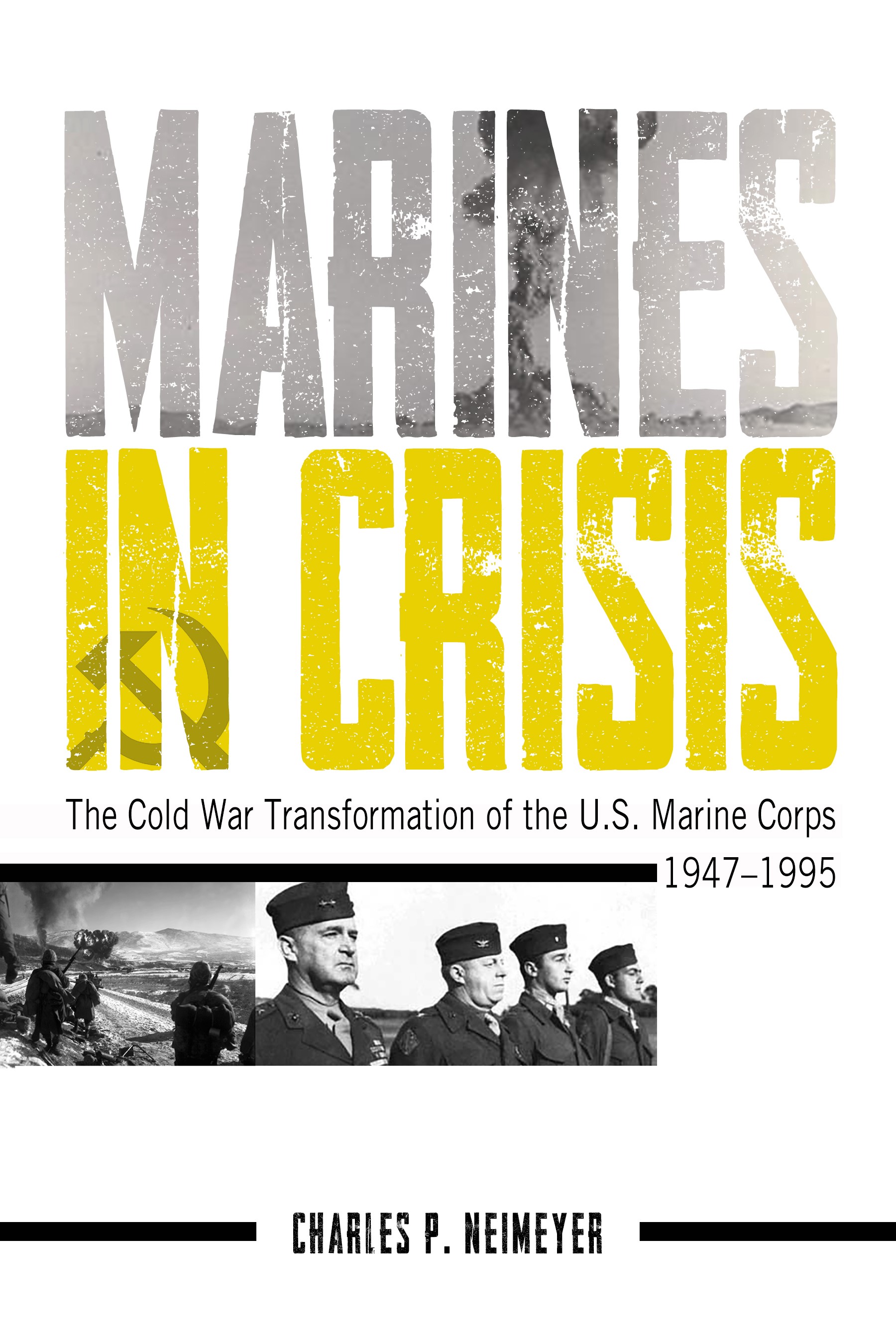 Marines in Crisis
Marines in Crisis
The Cold War Transformation of the U.S. Marine Corps, 1947-1995
By Charles P. Neimeyer, PhD
Throughout the Cold War and into the 1990s, the Marine Corps faced multiple strategic inflection points. Some of these moments were fights for institutional survival, some were based on emerging technology or internal upheaval, while others were more concerned with developing operational doctrine. When compared to the development of its amphibious warfare doctrine between World War I and World War II, these Cold War decisions related to the Marine Corps came about at an astonishing pace. Many of these post–World War II moments came only after painful experiences in increasingly complex and multidimensional Joint combat operations or humanitarian interventions, where international politics, rapidly changing technology, new societal norms, and even culture played an ever-larger role on the battlefield. For the Marine Corps, the Cold War and beyond seemingly required its senior leaders to predict the rapid-fire changes that impacted the new way of war and evolving politics of conflict. In response, those leaders continually transformed the Marine Corps to ensure it played a significant role in U.S. military matters.
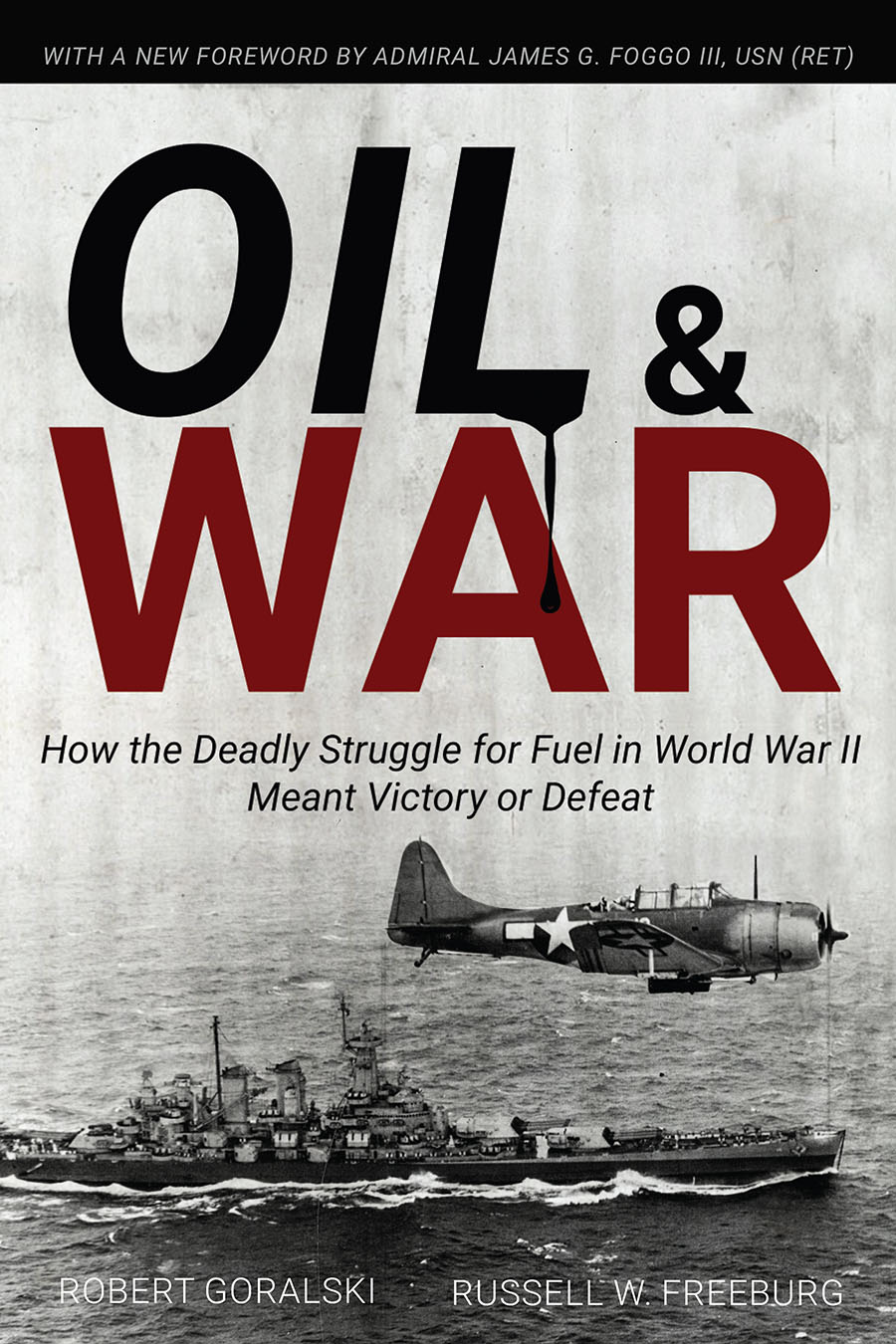 Oil & War
Oil & War
How the Deadly Struggle for Fuel in World War II Meant Victory or Defeat, reprint edition
By Robert Goralski and Russell W. Freeburg, with a new foreword by Admiral James G. Foggo III, USN (Ret)
The world’s economy runs on oil. People steal for it. Nations kill for it. To win a war, the victor must have enough oil to fuel their tanks, ships, and planes. One of the great untold stories of World War II is about the strategic decisions and combat for the control of enough oil so that the Axis powers could wage an aggressive war. Conversely, the Allied powers were determined to keep oil from the Axis. Oil & War, originally published in 1987, was the first book to explain this intricate dance of death from the view-points of both the Axis and Allied sides. Adolf Hitler began planning his grab for oil-producing lands in the 1930s; he also started building plants capable of producing synthetic fuels. The Japanese had their plans too. The Americans, English, and Australians had to counterpunch. They very nearly lost the war because they did not move quickly enough. The race was far closer than previously believed. Truth is stranger than fiction. Novels and wargames based on the strategies for oil have captured the public’s attention. But here is the real story. This anecdotal narrative about the important role that oil played in World War II provides a view of the forces that controlled the greatest war in history—and a stunning analysis of the importance of oil in terms of world peace for years to come.
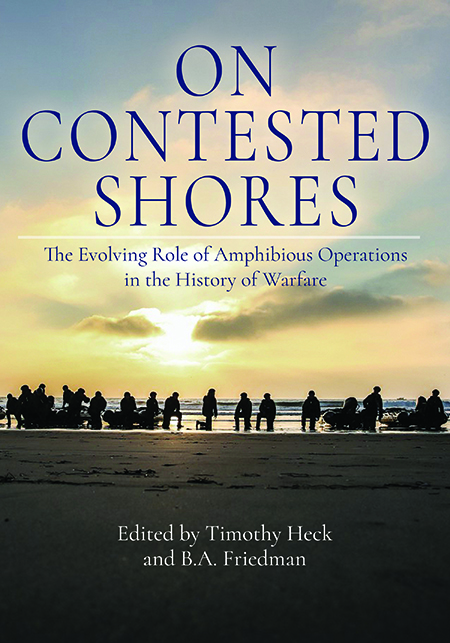 On Contested Shores
On Contested Shores
The Evolving Role of Amphibious Operations in the History of Warfare
Edited by Timothy Heck and B. A. Friedman
Perhaps no prediction has been as consistently made—and as consistently wrong—as the imminent death of amphibious operations. Whatever the changes in warfare and technology, the necessity of amphibious force projection endures, long outliving those who claim its time has passed. Changes in how amphibious operations are conducted, however, are just as consistent. This essential contributed volume arrives at a vital point of transition. These essays highlight both changes and continuities, examining historical amphibious operations as early as the sixteenth century to the near future, describing both lesser-known cases and offering more nuanced views of famous campaigns, such as Gallipoli and Normandy. With the release of the U.S. Marine Corps’ Force Design 2030, this volume gives historians, theorists, and practitioners an opportunity to ground the coming changes in the historical context as they seek to find out what it takes to win on contested shores.
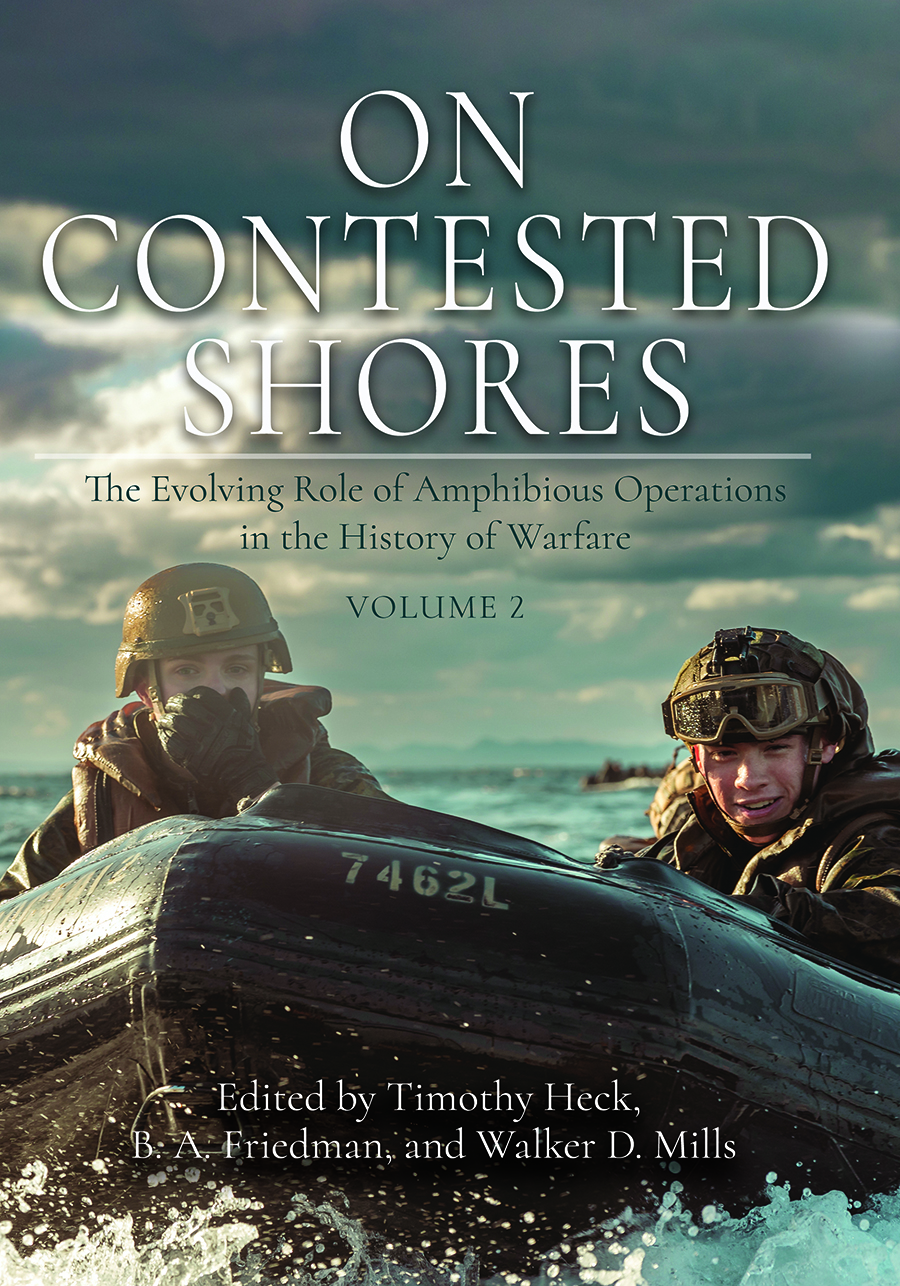 On Contested Shores
On Contested Shores
The Evolving Role of Amphibious Operations in the History of Warfare
Volume 2
Edited by Timothy Heck, B. A. Friedman, and Walker D. Mills
The second volume of On Contested Shores builds on the success and reception of the first, providing historians, theorists, and especially practitioners with a new resource to explore the history and the future of amphibious operations. This second volume arrives as the U.S. Marine Corps’ Force Design 2030 effort reaches a faster pace under a new Commandant. New original scholarship and research provides readers with a wealth of examples, new information about historical case studies, and deeper examinations of a wider array of amphibious issues. No other volume or set on amphibious operations provide such a diverse array of case studies and insights by leading researchers from around the world.
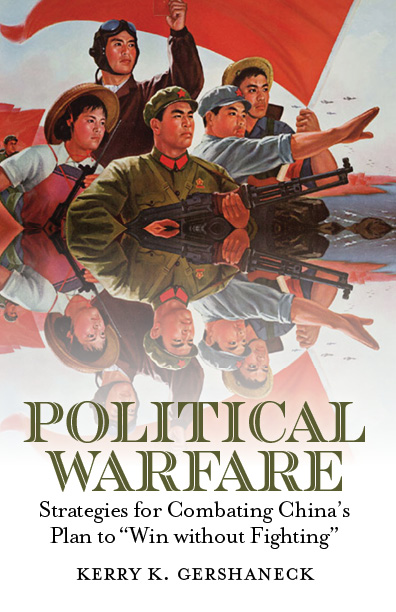 Political Warfare: Strategies for Combating China's Plan to "Win without Fighting"
Political Warfare: Strategies for Combating China's Plan to "Win without Fighting"
By Kerry K. Gershaneck
The People’s Republic of China (PRC) is at war with the world. It is a war fought mostly for control and influence, using coercion, corruption, and violent covert operations. The PRC prefers to win this war by never having to fire a shot, but its increasingly powerful military and paramilitary forces loom ominously in the background in support of its expanding war of influence. In Political Warfare, Professor Kerry K. Gershaneck describes how the PRC employs political warfare as its primary weapon to destroy its adversaries, including the United States and many of its allied and partner nations. Failure to understand China’s political warfare and how to confront it may well lead to America’s strategic defeat before initiation of armed conflict or to operational defeat of U.S. military forces on the battlefield. Ultimately, Gershaneck argues in this detailed study, the United States must relearn how to fight on the political war- fare battlefield to identify, deter, counter, and defeat this existential threat.
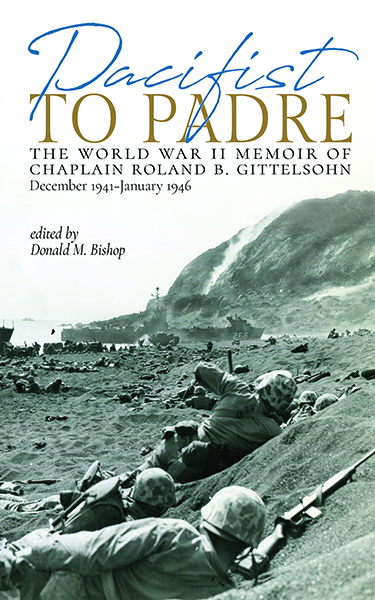 Pacifist to Padre: The World War II Memoir of Chaplain Roland B. Gittelsohn, December 1941-January 1946
Pacifist to Padre: The World War II Memoir of Chaplain Roland B. Gittelsohn, December 1941-January 1946
Edited by Donald M. Bishop
Roland B. Gittelsohn, the first Navy rabbi assigned with U.S. Marines, served in the Pacific during World War II. In this compelling book, written in 1946 but now published for the first time, he relates his odyssey from doctrinaire pacifist to “pacifist no more,” his training, and his ministry to Marines and sailors on Iwo Jima. His sermon at the dedication of the 5th Marine Division cemetery riveted all Americans, though it would only be heard by a small gathering that day. Woven through his account are reflections on morale, service, leadership, and interfaith understanding. He illuminates the vital, influential, and uniquely American institution of our military chaplaincy. Pacifist to Padre is the story of a rabbi deeply committed to peace and hope, who would be called “padre” by Marines and sailors in a gruesome battle.
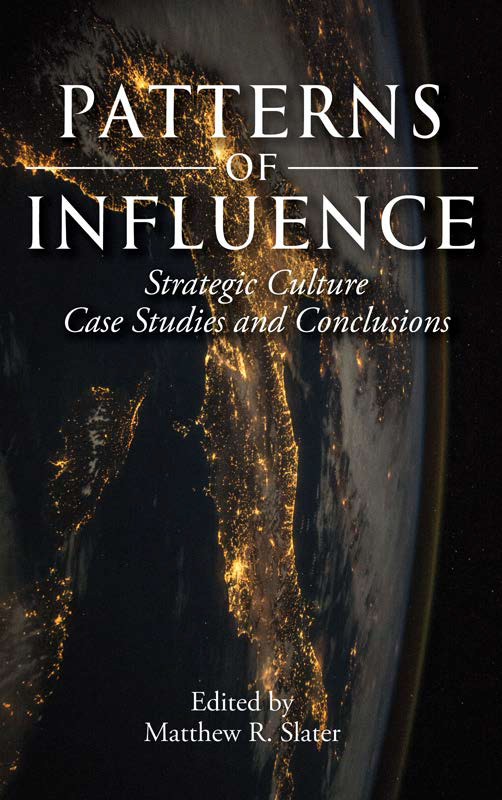 Patterns of Influence
Patterns of Influence
Strategic Culture Case Studies and Conclusions
Edited by Matthew R. Slater
Patterns of Influence is a timely book because of its applicability to the emerging strategic environment. The world is realigning into a multipolar power structure. Multipolar structures are typically complex, especially when considering the overlapping spheres of influence claimed by the competing powers in the international system. Patterns of Influence enables researchers to cope with the complexity of multipolar networks by promoting a strategic culture approach that provides a better understanding of internal state decision making. This book provides important commentary regarding the overall utility of strategic culture on states with limited federal governance, newer states that are still forming political processes and institutions, and smaller states that may become lost in the wake of regional powers. This study of strategic culture is written by scholars who are experienced working within the Department of Defense, including chapters on China, Afghanistan, Brazil, and Kosovo. Not only are the case studies geographically dispersed but also include large and small states, states with fragmented and cohesive political and social systems, as well as recently installed and more established governments. The eclectic group of case studies provide a broad basis to compare outcomes based on the strategic culture approach.
 Power Projection
Power Projection
Proceedings from the 2022 Strategic Landpower Symposium
Edited by Colonel Gregory Cantwell, William Barry, and Major Justin Magula
This volume serves as the culmination of many months of preparation and detailed research for the 2022 Strategic Landpower Symposium at the U.S. Army War College in Carlisle, Pennsylvania. During the symposium, participants examined the challenges of intelligence, sustainment, leadership, homeland defense and homeland security, information operations, irregular warfare, security force assistance, special operation forces, partnership programs, strategic guidance, and future trials. This book collects this important research and hopefully inspires new ideas for scholars to continue researching and thinking about future challenges to create novel concepts to share later.
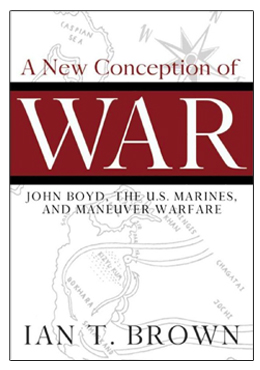 A New Conception of War: John Boyd, The U.S. Marines, and Maneuver Warfare
A New Conception of War: John Boyd, The U.S. Marines, and Maneuver Warfare
By Ian T. Brown
In 1989, the Marine Corps formally adopted a theory of conflict called maneuver warfare and described its tenets in a short but revolutionary doctrinal manual simply titled Warfighting. This conflict theory evolved along two paths that wound their way through the landscape of the late Cold War period before coming together in 1989. A New Conception of War traces this story from the post–Vietnam War years to the present. The first path was forged by U.S. Air Force colonel John R. Boyd, whose ideas on warfare were shaped by a military career during the height of the Cold War and his own passion for challenging conventional wisdom in the search for new and useful ideas. The second path was navigated by many thinkers within the Marine Corps during a period of institutional soul-searching after Vietnam. Drawing on new and previously unpublished material from the major players of this period, including a full transcript of Boyd’s “Patterns of Conflict” lecture, A New Conception of War captures a period of remarkable intellectual ferment within the Marine Corps and the development of a unique conceptual framework for warfighting that continues to inspire Marines today.
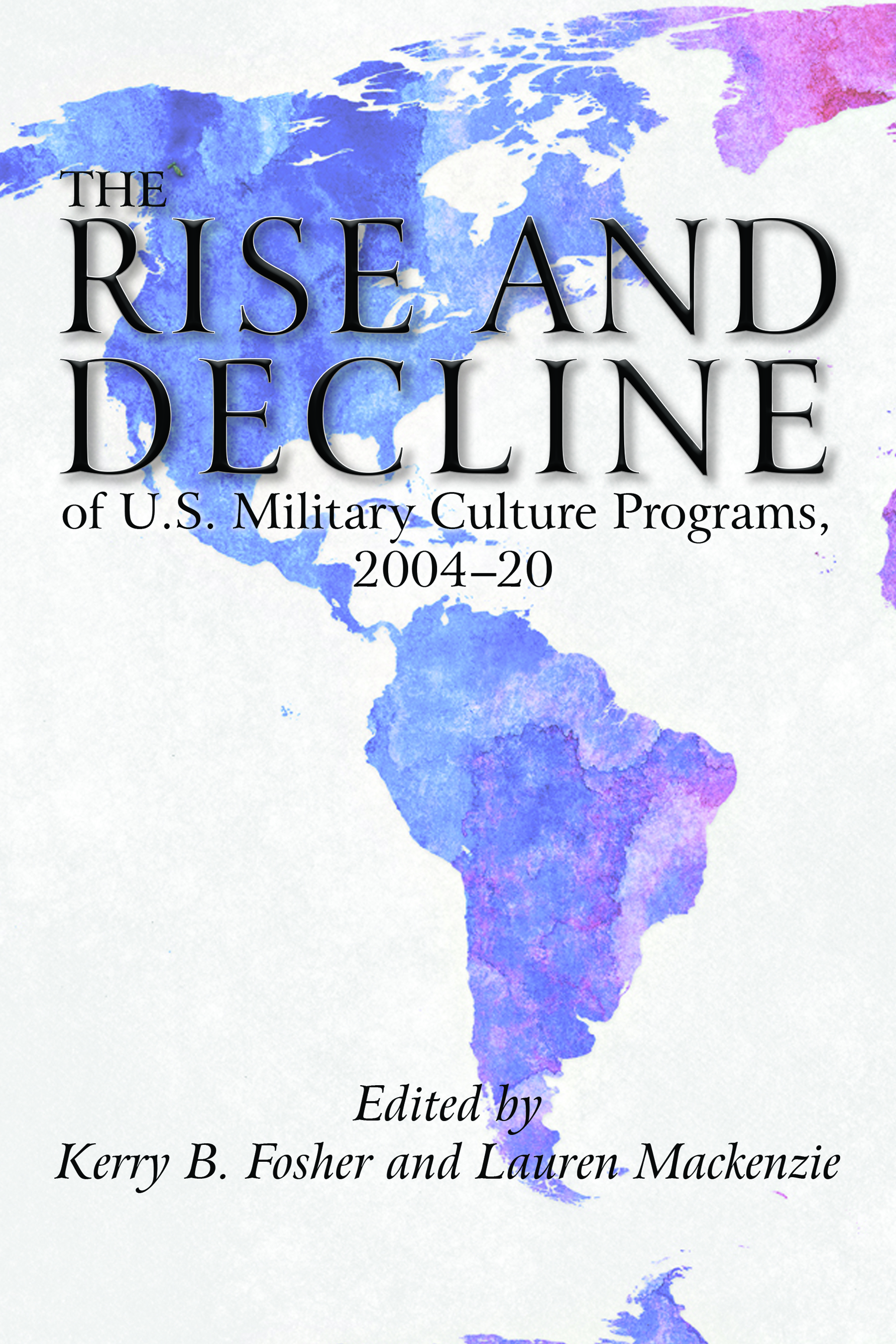 The Rise and Decline of U.S. Military Culture Programs, 2004-20
The Rise and Decline of U.S. Military Culture Programs, 2004-20
Edited by Kerry B. Fosher, PhD, and Lauren Mackenzie, PhD
This book compiles the insights and findings of some of the most determined and resourceful scientists, scholars, and practitioners engaged in the programs to inculcate the new capabilities in the early twenty-first century. The authors do not gloss over failures and dead ends. Rather, their expectation is that by presenting the bad with the good, they can help future generations engaged in the same task avoid their pitfalls and build on their work. More importantly, the authors hope that their writing might reach those who are still engaged in building cultural capabilities and that they will find encouragement to continue this essential work.
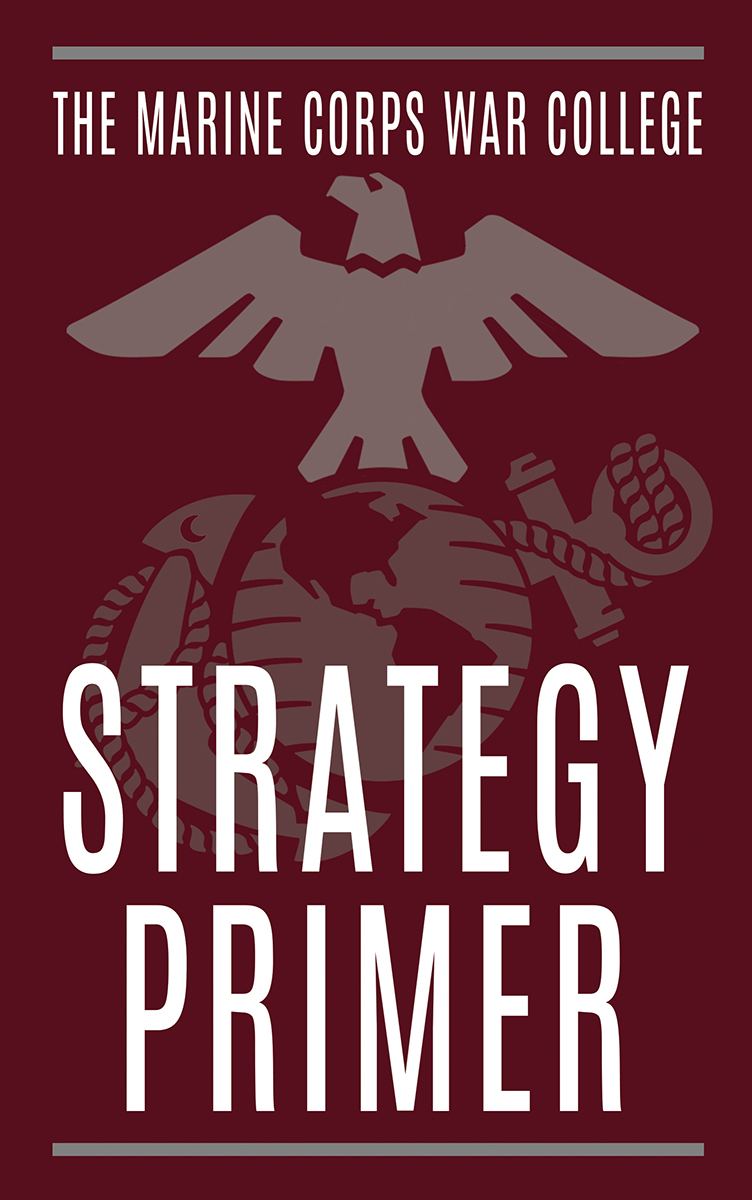 The Marine Corps War College Strategy Primer
The Marine Corps War College Strategy Primer
The process of strategy making is neither easy nor for the feebleminded. In fact, the creation of work-able strategic approaches to the most intractable problems on the planet is an intellectual exercise unmatched in human endeavors. The strategist—particularly the military strategist—must often choose between multiple contradictory solutions and approaches in the midst of mayhem. History is filled with the destruction of empires and nations that got it wrong. Whether the United States remains a preeminent power in the twenty-first century will in no small measure rest on the capability of strategists graduating from the nation’s war colleges today. This primer is designed to help Marine Corps War College (MCWAR) students think creatively and critically about strategy-making processes. By presenting a sampling of principles and methodologies drawn from some of the most important works on the topic, this primer will streamline many of the contradictions that strategy makers will encounter during their time at MCWAR and throughout their careers.
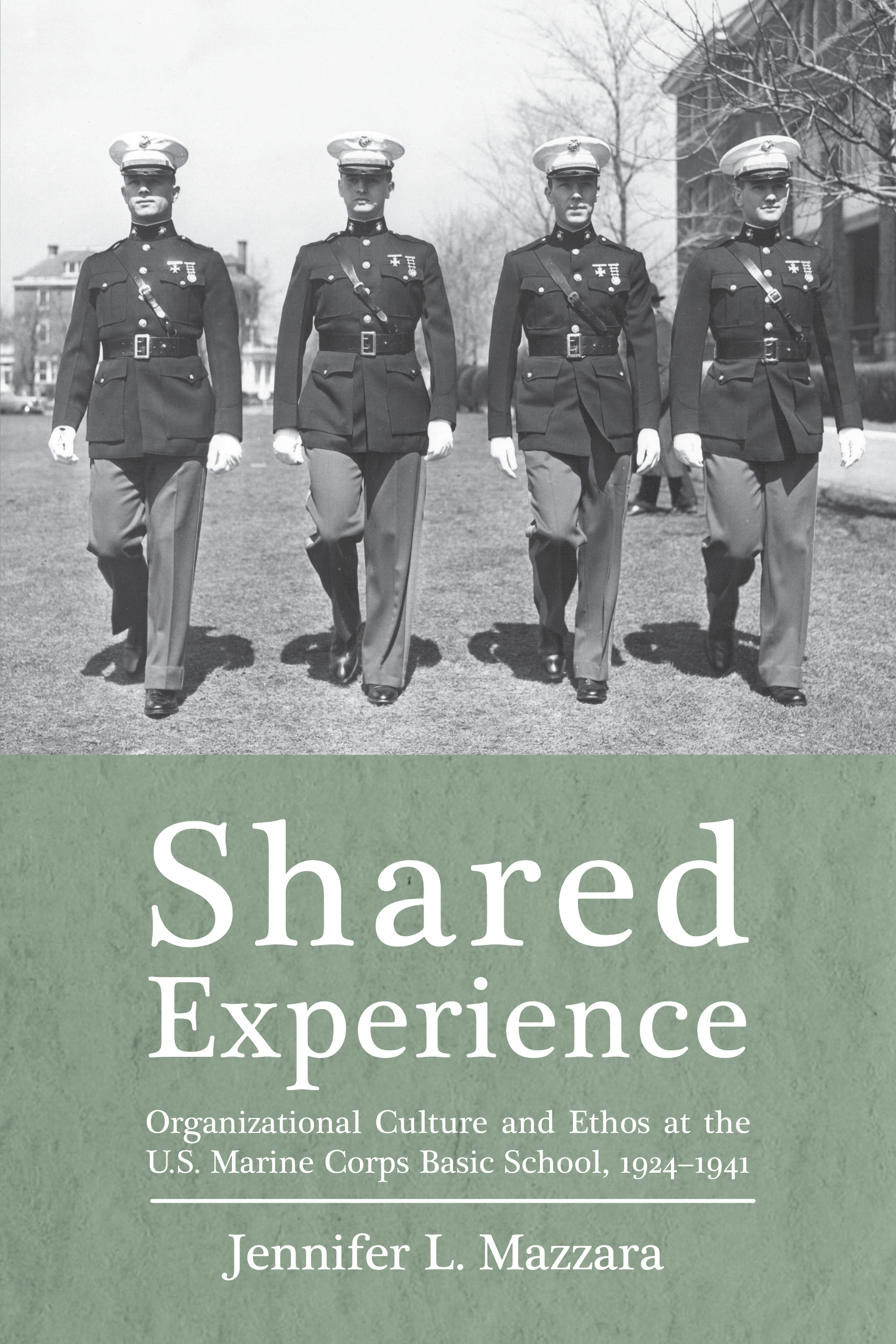 Shared Experience: Organizational Culture and Ethos at the U.S. Marine Corps Basic School, 1924-1941
Shared Experience: Organizational Culture and Ethos at the U.S. Marine Corps Basic School, 1924-1941
By Jennifer L. Mazzara, PhD
From early in the modern history of the Marine Corps, The Basic School (TBS) has played an enormously important role in acculturating Marine officers in the profession of arms. Author Jennifer Mazzara’s exhaustive and detailed research, which included examining the curricula of prewar TBS, shows that the TBS product, the Marine lieutenant, was fundamental to the early victories of the Second World War. As the only basic-level post-commissioning school in the United States that imparts a generalist education, rather than specialist training, TBS is unique among the military schools operated by the U.S. armed forces. Its distinctiveness stems from two primary features: its structure, and what it provides to its graduates. This history reveals TBS’s essential qualities during the interwar period, but it also illuminates the timeless and immutable reality and necessity of this institution that has bound generations of Marine officers to each other and to the Corps.
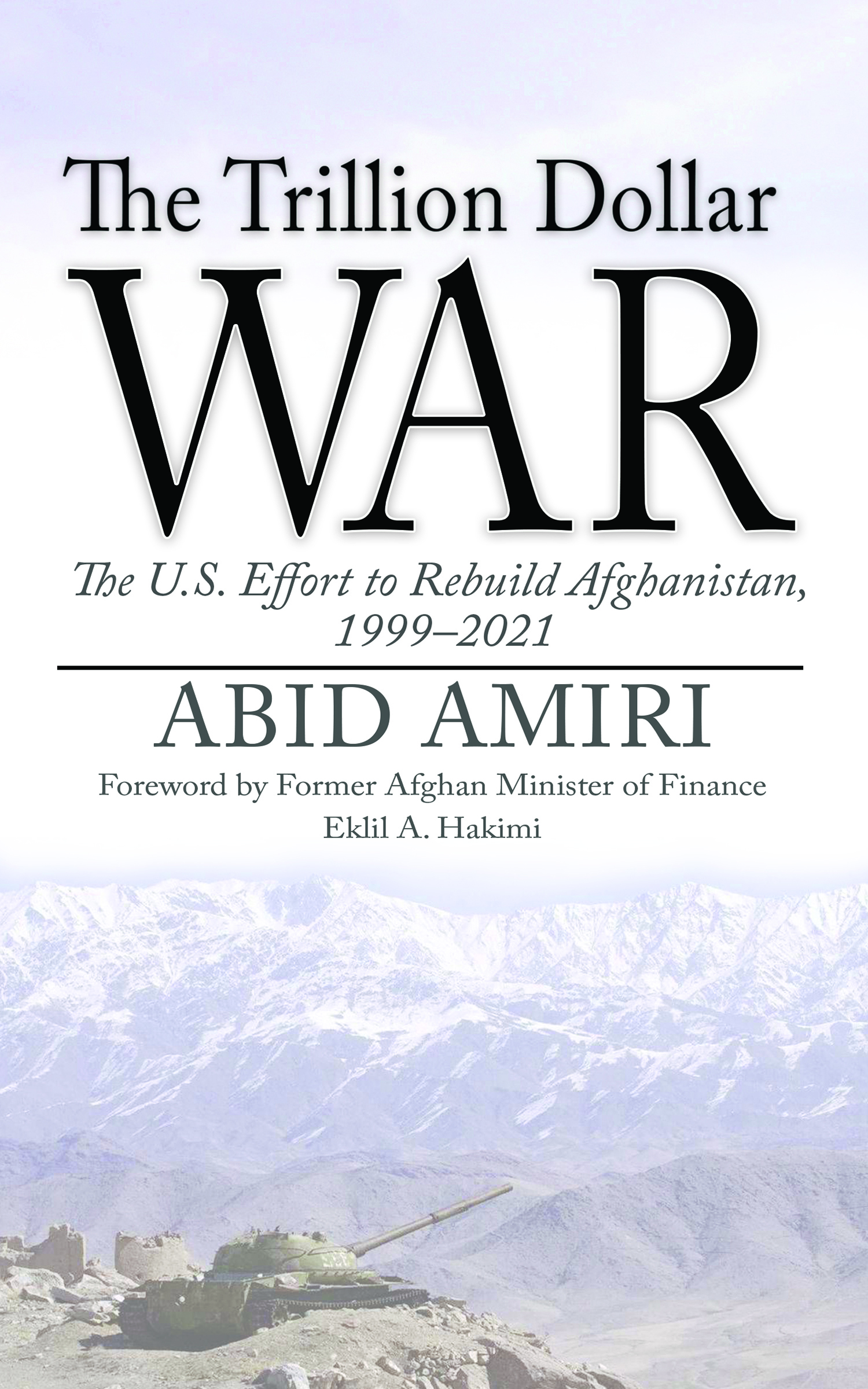 The Trillion Dollar War
The Trillion Dollar War
The U.S. Effort to Rebuild Afghanistan 1999-2021
By Abid Amiri
What if the U.S. war on terror in Afghanistan was fought not by the military but by educating the Afghan youth, and what if the trillion dollars had been spent instead on economic development in Afghanistan rather than on bombs and fighter jets? The Trillion Dollar War helps explain the United States’ efforts to rebuild Afghanistan during the last 20 years. The book outlines the successes and failures of both Afghans and Americans in this endeavor. In addition, it provides an in-depth analysis of the cost of America’s longest war, and it asks whether spending more on education and infrastructure than on weapons of war would have resulted in a different outcome.
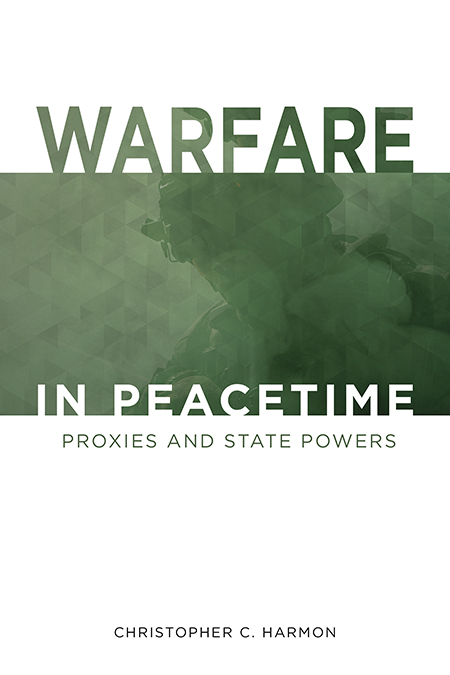 Warfare in Peacetime:
Warfare in Peacetime:
Proxies and State Powers
By Christopher C. Harmon, PhD
Warfare in Peacetime offers an expansive and elaborated portrait of overseas proxy wars. The structure and substance will prepare observers, analysts, and participants seeking to understand challenges before American and other statesmen. The work helps frame the morass in Syria, with all its foreign links; the contest for influence in Libya, where innumerable hands vie for dominance; the fighting in Yemen, where Houthi Shia organizations backed by Iranian sponsors battle Sunni tribes; and life along the borders of Russian expansionism, where Ukrainians plea for outside assistance, including weapons from Washington. Such ongoing “warfare in peacetime” has a thousand precedents in a dozen ages, including our day, and some of the patterns are explored along with detailed case studies.

Wargaming Waterloo
By Charles J. Esdaile, PhD
Wargaming—the simulation of complex war situations—is becoming increasingly more relevant to political and military discourse as U.S. armed forces lean more heavily on it as a training tool to hone warfighters’ decision-making skills and to shape defense plans and policies. And while wargaming can be useful for informing predictions of future military conflicts, it is also an excellent tool for understanding past conflicts. Wargaming Waterloo explores three key aspects of wargaming as a practice by focusing on the iconic battle that led to Napoléon Bonaparte’s defeat in 1815. A longtime subject of both fascination and controversy, the Battle of Waterloo presents particular problems as a board, map, or tabletop wargame and also poses a serious research question: just how good a chance did Napoléon have at victory when he confronted the duke of Wellington at Mont Saint-Jean and how would the strategic situation have to be different to enable Napoléon to prevail?
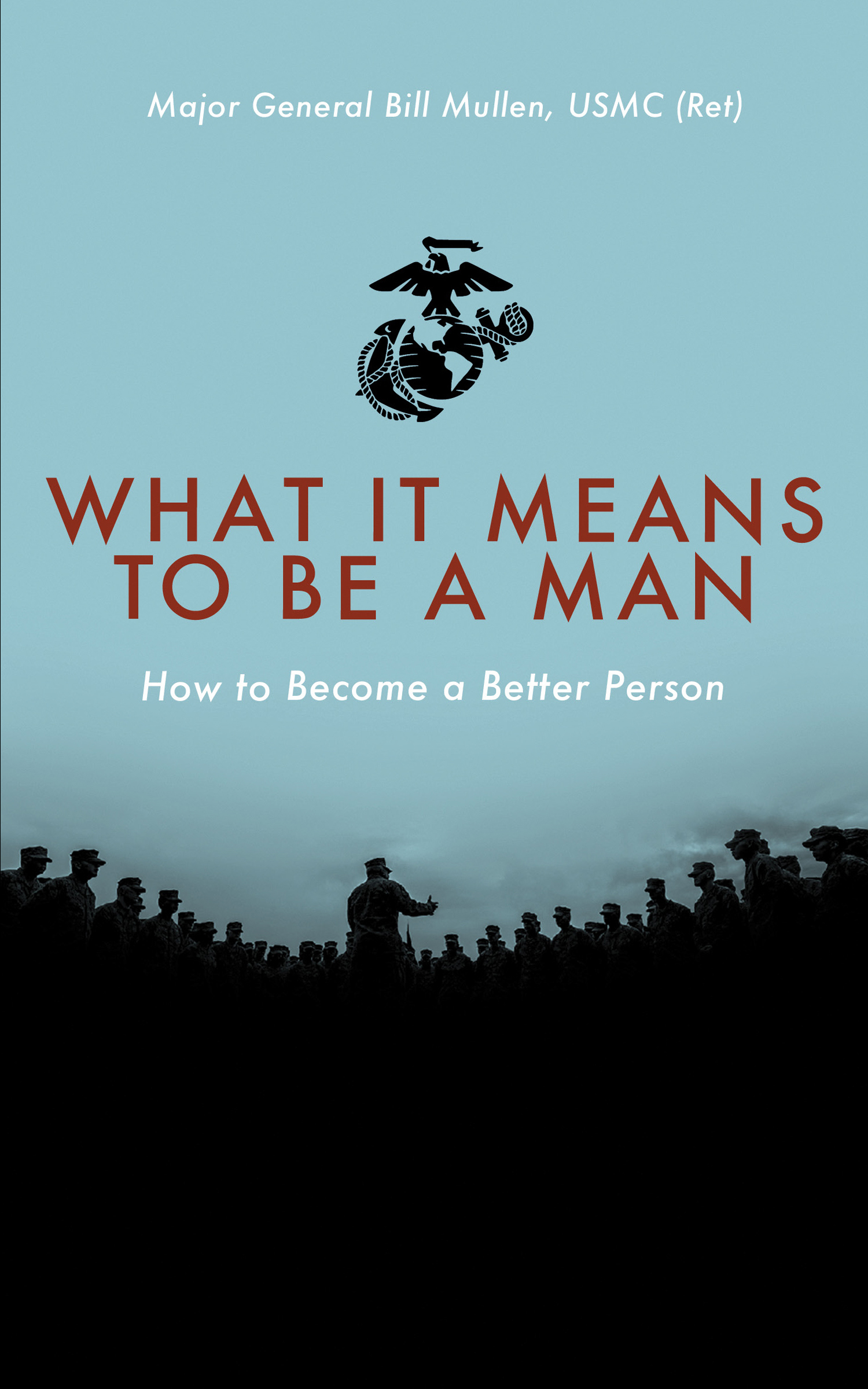 What It Means to Be a Man
What It Means to Be a Man
How to Become a Better Person
By Major General Bill Mullen (Ret)
We all have flaws because, as humans, we are all inherently fallible. If we can focus on becoming better people in life, it will likely help mitigate that fallibility. What It Means to Be a Man focuses on the concept that if all young Marines internalize the words and thoughts here, and use them to not only be better Marines but more importantly, better people, then we can be a much better Service overall. The U.S. Marine Corps and the American people have invested so much time, effort, and money into them that they are more than worth the effort to make them better people now but also when they take off the uniform and return to civilian society.
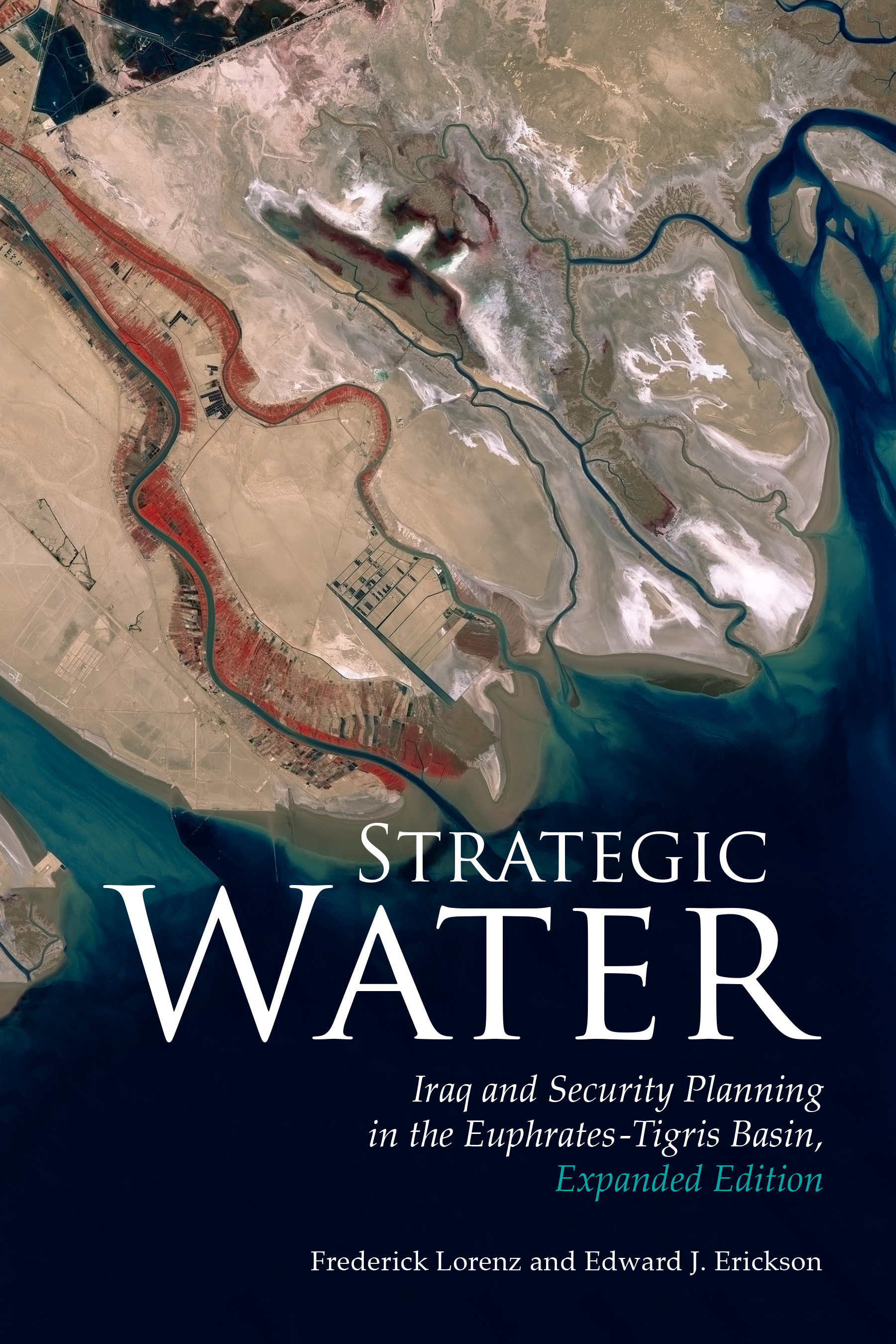 Strategic Water
Strategic Water
Iraq and Security Planning in the Euphrates-Tigris Basin,
Expanded Edition
By Frederick Lorenz and Edward J. Erickson
The issue of freshwater scarcity has always been of vital concern to humans, and today it is increasingly characterized as a strategic factor in security planning. In the Euphrates-Tigris basin, water apportionment and management combined with climate change are increasingly emerging as threats to regional stability. The United States has a longterm strategic interest in the Euphrates-Tigris basin that, in turn, is directly linked to the national interests of the riparian states. The expanded second edition of Strategic Water: Iraq and Security Planning in the Euphrates-Tigris Basin updates analysis of the geopolitical situation and expands coverage of the aspirations of the basin countries. Finally, the book presents new conclusions and a proposed framework for action in the next 10 to 20 years.